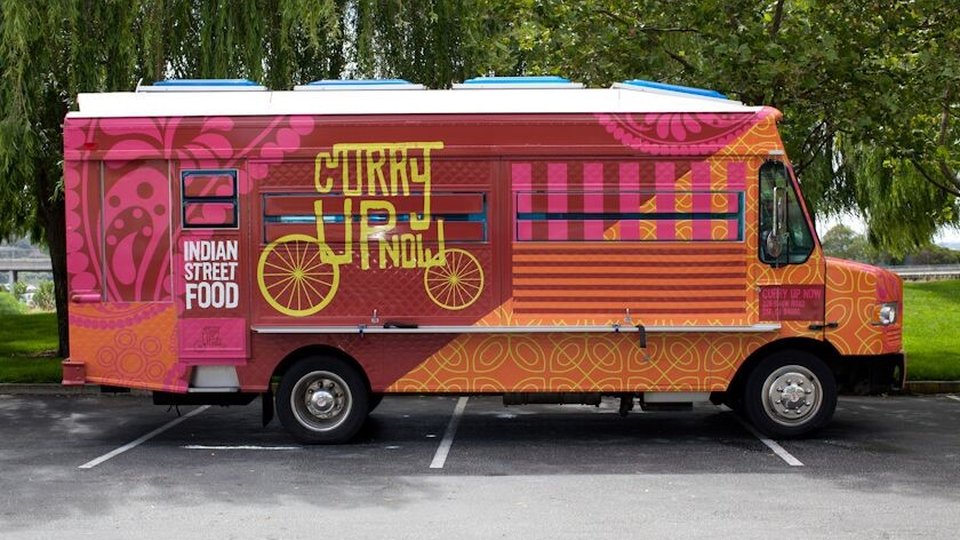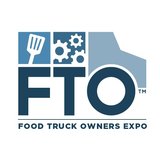Article
How Indian fast casual leader Curry Up Now began as a food truck
The husband-and-wife team of Akash and Rana Kapoor picked the right time to get into the food truck business in 2009. They now oversee Curry Up Now, a rapidly growing fast casual chain.

September 26, 2018 by Elliot Maras — Editor, Kiosk Marketplace & Vending Times
Akash Kapoor, CEO and founder of Curry Up Now, never expected to be running one of the fastest-growing fast casual restaurant chains in the country when he and his wife, Rana, started a food truck specializing in Indian cuisine.
 |
| Akash Kapoor had no idea how popular food trucks would become when he launched Curry Up Now in 2009. |
The Kapoors came up with the food truck idea in 2009 while brainstorming business opportunities after getting out of the mortgage lending business, which had imploded.
They had no idea how good their timing was. The food truck industry was on the verge of exploding in 2009, as was the fast casual restaurant business that the food truck led them into.
In retrospect, the food truck gave them an excellent background in fast casual foodservice, as the couple had no prior foodservice experience of any kind.
"We learned without too much financial exposure to begin with," Akash Kapoor said. "We tested. We proved concept." Two years after launching their first food truck, they opened their first brick-and-mortar restaurant.
A fast casual leader
Curry Up Now ranks No. 38 in the 2018 Fast Casual Top 100 Movers & Shakers, and is recognized as the leader in the fast casual Indian food market. In 2017, the company experienced a 15–20 percent increase in same-store sales growth.
Currently, there are six brick-and-mortar Curry Up Now restaurants in the San Francisco Bay area and a seventh under construction. The greatest growth, however, will be through franchising.
None of this growth was imaginable in 2009 when the Kapoors decided to launch a food truck specializing in Indian cuisine.
With the exception of taco trucks that mostly served blue-collar work sites, food trucks were not yet entrenched in the Bay area.
"It was a niche," Kapoor said. "It was an idea and it just felt right at the time." Two weeks after coming up with the idea, they purchased a used taco truck for less than $20,000, and two weeks later, they were selling Indian food.
A unique menu
The niche the Kapoors came up with was partially born of their own creativity. In addition to traditional Indian foods, such as naan, kofta, samosa and kebab, they developed menu items that mix Indian fare with more typical Southern California items. They placed Indian-style meat and vegetables in tacos, burritos, quesadillas and with French fries.
"That's kind of the format of the food; it's different, it's funner, it's more recognizable," Kapoor said. The menu mainly provides traditional Indian flavors, but many of the entrees also include non-Indian foods.
The unique nature of the food, which the Kapoors prepare in a kitchen as required by law, was a selling point from the very beginning, Kapoor said. "Our food is very authentic."
They created recipes for menu items — naan, chicken kofta meatballs, lamb samosa, maggi noodles, hollowed semolina puri, potato garbanzo mash, chaat, kebab and hummus — on their own, subjecting each to feedback from friends.
Humble beginnings
The Kapoor's truck came with a fryer, a flat top, a steam table, a hot box, a coffee dispenser, a refrigerator and a three-compartment sink. They replaced the truck's engine and some of appliances for a total investment between $25,000 and $30,000.
Not knowing how their food truck would be received, the couple did not start out with long-term goals. "It was strictly a part time business," Kapoor said. They took the truck only to shopping malls on weekends.
Getting the necessary permits for the truck was a challenge at the time. "Most of the cities in 2009 didn't know anything about food trucks," Kapoor said.
Local officials did not raise objections to the truck, but local restaurants owners were a different story. In response to their complaints, the city of Burlingame, California, surveyed residents, who overwhelmingly favored allowing the food truck. This gave the Kapoors the green light to begin serving on weekdays as well as weekends. Companies in the Bay area, which was experiencing a second "tech boom," welcomed food trucks.
Riding the demand
"That's when we realized that [the food truck] is better for lunch than just for the weekends," Kapoor said. Oracle Corp., the multinational software company, was one of the truck's first lunch locations.
Recognizing the demand, the Kapoors purchased a second truck along with the seller's parking spot in San Francisco's financial district. The second truck wasn't new, but it was not as old as the first one; the Kapoors had learned from experience that a heavily used truck requires too many repairs.
In 2009, social media was just taking off, which catalyzed the gourmet food truck movement.
"We leveraged that, and that's how we let our guests know where we were," Kapoor said. "There would be lines before we came."
Curry Up Now was one of the first trucks to partner with Off the Grid, one of San Francisco's largest food truck parks, which also launched in 2009. The day the park opened, there were only a few customers.
"Off the Grid was nothing back then," Kapoor said. "We started together. We kind of grew together." By mid-2010, Off the Grid was "amazing," he said. The Kapoors then bought their third truck.
The trucks expanded beyond lunch business to catering, which has gradually grown to become a significant portion of the business.
The Kapoors added their fourth and fifth trucks in 2011 and 2012, but have since cut back to three in order to focus on more profitable locations. They opened their first fast casual restaurant in 2011 in San Mateo, and the focus has been on bricks and mortar ever since.
Part two of this two-part series will explore Curry Up Now's present focus on the fast casual restaurant business.
About Elliot Maras
Elliot Maras is the editor of Kiosk Marketplace and Vending Times. He brings three decades covering unattended retail and commercial foodservice.







